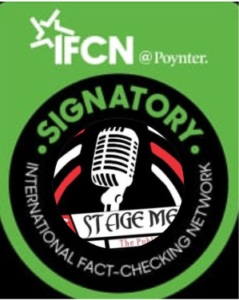
Abe Darius Dillon is a Montserrado senator who backs Unity Party presidential candidate Ambassador Joseph Boakai in the 2023 elections.
Dillon wrote on his Facebook page that the National Elections Commission (NEC) has failed to publish the Final Registration Roll (FRR) despite its commitment and legislation.
He said, “The final voter’s roll for the scheduled October 10 presidential and legislative elections has not been published. Publishing the Final Voter’s Roll informs about the exact, last, and actual number of registered voters across the country and allows registered voters to see and verify their names on the roll in advance of election day. When the entire Board of Commissioners appeared before the Senate about two weeks ago, I specifically asked about the Final Voter’s Roll and why it was not published in newspapers or on the NEC’s official website.”
It added, “The Commission, through its Chairperson, responded (under oath) before the Senate Plenary that the final voter’s roll would be published on Monday, September 18, 2023. Today is Wednesday, September 20; no final voter’s roll has been published, for unknown reasons, I may add.”
“Let the word go forth to NEC that if the Final Voter’s Roll is not published by the end of business day on Thursday, I will lead a swarm of supporters and concerned citizens at the Elections Commission on Friday to demand immediate action in said direction, according to law. We are taking no chances and will take absolutely no chances!”
On Friday, September 22, Dillon led supporters at the NEC, requesting the final voter roll be published.
We checked a few lines in his post.
- Whether the NEC agreed to release the FRR by September 18, 2023
- Whether the NEC has published the FRR as of the time of the senator’s claim and
- Whether the NEC has broken any rules or deadlines
Verification: True, the FRR has not yet been published by the National Elections Commission in keeping with the law. The data, according to NEC chairperson, Davidetta Browne Lansanah, is currently being examined by its experts and will be provided to all parties once all required safeguards are taken to prevent the roll from being altered, contrary to the senator’s claim that there’s no reason given for such a delay.
The senator is also correct regarding the second instance of the NEC chairperson agreeing to disclose the FRR before September 18th. She was specifically questioned about the FRR and why it wasn’t published in newspapers and on the NEC’s official website when the entire Board of Commissioners testified before the Senate on August 29, 2023. Chairperson Browne-Lansanah replied that the Commission would have published the FRR on September 18, 2023, but that hasn’t happened.
Finally, the senator claimed that NEC broke the new election legislation, but we could not find any evidence to support his assertion. The publication of the final registration roll so that all parties concerned can have access to it and voice any concerns is not addressed by the new elections law.
We also looked at the National Elections Commission’s (NEC) regulations for the 2023 elections, and couldn’t find anything about a deadline for the NEC to provide the FRR. The NEC website’s voter registration regulations provide no deadlines for when the NEC should publish the roll.
However, 16.7 of the 2023 voter regulations states, “No final registration roll may be altered within thirty days prior to an election, except upon an order of the Supreme Court of Liberia.”
At Tuesday’s Press briefing, Browne-Lansanah (13:06) said she is unsure of the law, but she promises that the commission is working to publish the FRR; she does not specify a date for publication.
Conclusion: The senator’s assertion is true in regards to two of the three queries that were confirmed, however, there is no publishing deadline for the final registration roll. Despite the fact that the FRR cannot be changed, it is safe to assume that it has not yet been published since the country has less than 14 days until its 2023 elections.
This story was produced with the Center for Journalism Innovation and Development (CJID)’s support.







